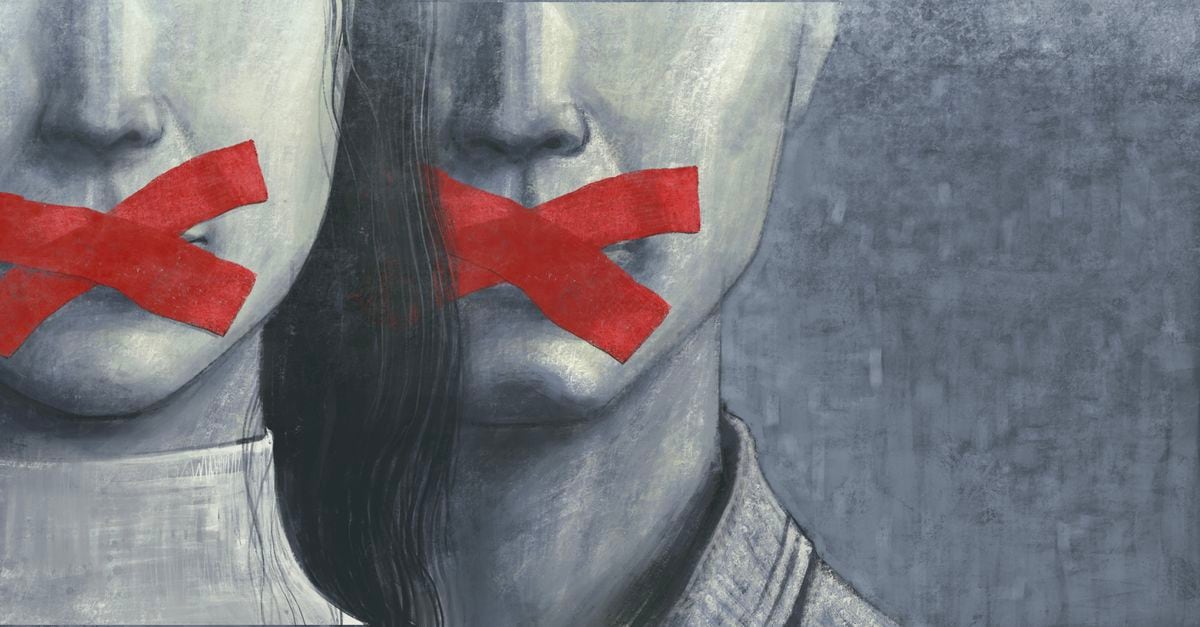Jorm Sangsorn (Getty Images)
In Colombia there is widespread concern about corruption.
Politicians constantly use it in their speeches and the media bring it up daily on their covers and in their news reports.
Last January, the
What Worries the World
measurement by the Ipsos firm revealed that corruption is the third issue that generates the most concern among Colombians, with 33%, being only surpassed by unemployment (41%) and violence (38%). ).
In the periodic InvamerPoll surveys, it is usually the most serious problem that citizens point out.
However, the law does not have mechanisms to protect whistleblowers of acts of corruption — also known, by their English name, as
whistleblowers
— and prevent crimes associated with this type of situation from continuing to occur.
The American military analyst Daniel Ellsberg, who leaked classified reports to the
New York Times
about the Vietnam War during the 1970s, is one of the best-known examples worldwide of what a
whistleblower
is .
Those documents, which were later published by the press, demonstrated that the White House lied to citizens and Congress about the adverse development of that conflict.
It is such an iconic episode in the recent political history of the United States that it was made into a film by Rod Holcomb, in 1993, and by Steven Spielberg, in 2017.
Whistleblowers like Ellsberg abound in other countries, including Colombia.
One of the most notable cases recently involves Martha Mancera, the acting attorney general.
In 2021, Fabio González and Pablo Bolaños, investigators from the Technical Investigation Corps (CTI) of the Prosecutor's Office, warned him that Francisco Javier Martínez, an official from that same institution in Buenaventura, Valle del Cauca, was actively collaborating with mafia bosses to export smuggling and drugs.
González and Bolaños state that, instead of providing them with protection and support, Mancera reacted with retaliation: they were sent to distant regions and criminal proceedings were opened against them for falsifying a public document.
They reported and were not helped, despite the fact that their findings were the basis for Martínez to be captured on February 22.
The decision of both of them to step forward and denounce their partner ended up bringing them adverse consequences.
Something similar happened to Ellsberg, who had to face a trial against him – which he won – and endure public accusations from some sectors that considered the leak of documents as a betrayal.
To avoid unfavorable consequences for
whistleblowers
and encourage more people to report abuses of power or acts of corruption, different jurisdictions have created laws that protect them.
Since 2019, the Organization for Economic Cooperation and Development (OECD) has recommended that Colombia adopt “urgent legislation that provides clear and comprehensive protections from retaliation to whistleblowers in the public and private sectors.”
The cooperation organization, in several of its reports, reviewed what happened to Jorge Enrique Pizano, auditor of the Ruta del Sol II infrastructure megaproject, who died in November 2019 under strange circumstances — the authorities indicate that he died of natural causes, his family maintains that it was a homicide—after denouncing that the money from the work was being embezzled.
Calls to create such legislation have been in vain.
Andrés Hernández, director of Transparency for Colombia, attributes the delay to a lack of political will.
“Congress has not wanted to have a serious debate on this issue.
The House of Representatives has received bills, and they have not even seen the first debate.
It is evident that if what I want to attack is corruption, I should protect those who report it,” he questions.
One of the initiatives he mentions is the one presented by the Administration of Iván Duque with the name “Pedro Pascasio Martínez law”, in honor of the pre-adolescent soldier of the liberating army who did not succumb to the bribery attempts of a Spanish commander and preferred hand it over to your superiors.
The project, which was far from achieving approval, proposed rewards for whistleblowers of acts of corruption.
For former minister Fernando Cepeda, it is key that whistleblowers receive some type of compensation.
“Everything surrounding
whistleblowing
has three fundamental elements: the complaint, the whistleblower and the reward.
If there is no significant reward, it is not worth asking someone to put themselves through such an effort.
In the United States there are examples of rewards that have reached hundreds of millions of dollars.
The only way for it to work in Colombia is for rewards to be given that range between 10% and 30% of what is prevented from being stolen,” he assured.
The law he refers to is the Dodd-Frank Wall Street Reform and Consumer Protection Act, passed in 2010.
In addition to the United States, 12 other OECD member countries have whistleblower
protection rules
.
Most include incentives and rewards, as well as chapters that oblige the private sector to implement measures to facilitate complaints within their corporations.
Criminal lawyer Juan Camilo Muñetón sees their use.
He insists that while each company should carry out such practices, legislation can help.
“The strategy goes beyond prosecuting the commission of crimes, it also allows us to identify corrupt behavior that is not necessarily a crime,” he says regarding internal bad practices.
An initiative to protect whistleblowers of corruption is currently underway in Congress.
The project, which was presented by the ruling party and the Ministry of Justice in memory of Jorge Enrique Pizano, has not yet been debated.
It has “a good environment,” says representative David Racero.
“Our bill seeks to establish mechanisms to guarantee the protection of the fundamental rights to life, integrity and personal security of the complainant and his family,” he published on his X account.
Subscribe here
to the EL PAÍS newsletter about Colombia and
here to the WhatsApp channel
, and receive all the key information on current events in the country.

